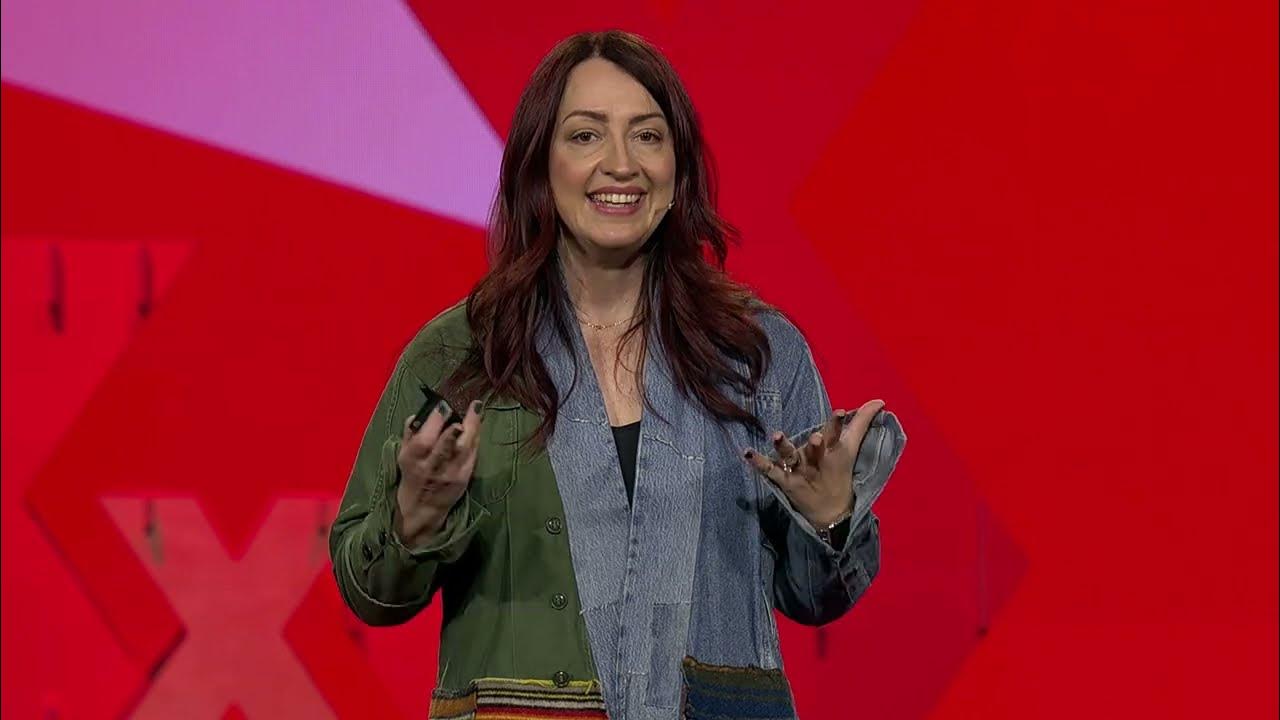7 Ways to Make a Conversation With Anyone | Malavika Varadan | TEDxBITSPilaniDubai
Summary
TLDRIn this engaging talk, the speaker emphasizes the power of conversation as a means to forge connections and enrich our lives. She likens conversations to links in a chain, growing stronger with each interaction. Drawing from her experience as a radio presenter, she offers seven practical tips to initiate and sustain meaningful dialogues with strangers, advocating for the value of genuine human connection in an era dominated by digital communication.
Takeaways
- 🗣️ Conversations are vital social links that strengthen with each interaction.
- 🌐 The speaker likens the network of conversations to a 'World Wide Web', emphasizing its expansiveness and importance.
- 💬 Conversations can have profound impacts, from sparking wars to making peace, and they define humanity.
- 👥 Everyone in our lives was once a stranger, highlighting the importance of first conversations.
- 🔊 The speaker encourages talking to strangers and provides seven ways to initiate conversations effectively.
- 🎙️ As a radio presenter, the speaker uses their experience to share insights on connecting with a large, unseen audience.
- 🕒 Time is a critical factor in conversation, with the speaker detailing the challenge of making a short interaction memorable.
- 🤝 The 'first word floodgates' concept suggests that the initial greeting can unlock a flow of further communication.
- 🤔 Skipping small talk and asking personal questions can lead to more meaningful and engaging conversations.
- 🔍 Finding common ground, or 'me too' moments, helps establish rapport and makes conversations more enjoyable.
- 🌟 Paying unique compliments can leave a lasting impression and make people feel valued.
- 🗳️ Asking for opinions opens up two-way communication and reveals more about a person's character.
- 👁️ Being present and making eye contact during a conversation fosters a deeper connection.
- 📚 Remembering personal details about individuals, such as names and preferences, shows genuine interest and investment in the relationship.
- 📖 The analogy of a conversation being like reading a book encourages exploring the depth of human stories beyond surface-level interactions.
Q & A
What is the main theme of the speech given by Queenie Lee?
-The main theme of the speech is the importance and impact of conversations, especially with strangers, and how they can enrich our lives and build connections.
How does Queenie Lee compare conversations to a tangible object in the speech?
-Queenie Lee compares conversations to tiny metal links, which get stronger with each interaction, forming a massive World Wide Web of conversation.
What does Queenie Lee suggest is the first step in starting a conversation with a stranger?
-The first step suggested by Queenie Lee is to simply say 'Hi,' 'Hey,' or 'Hello,' as the first word acts as a floodgate, allowing the rest of the conversation to flow.
Why does Queenie Lee recommend skipping small talk and asking personal questions?
-Queenie Lee recommends this approach because it allows for more meaningful and memorable conversations, as people are often willing to share personal stories when asked directly.
What is the 'compliment immunity meter' that Queenie Lee refers to in her speech?
-The 'compliment immunity meter' is a concept that suggests some people have become immune to common compliments like 'beautiful' or 'nice' due to overuse, and thus, it's important to give unique and genuine compliments.
How does Queenie Lee describe the process of finding common ground with a stranger?
-Queenie Lee describes it as finding the 'me too' moments, which are shared experiences or interests that can make the conversation easier and more engaging for both parties.
What is the importance of asking for an opinion in a conversation according to Queenie Lee?
-Asking for an opinion is important because it validates the other person's thoughts, opens up a two-way communication, and allows you to learn more about the person.
Why does Queenie Lee emphasize the importance of being present during a conversation?
-Being present is crucial because it shows respect and genuine interest in the other person, which can lead to a deeper and more meaningful connection.
What advice does Queenie Lee give regarding remembering details about people you meet?
-Queenie Lee advises to remember and repeat details such as names, places, and personal interests, as this demonstrates investment in the person's well-being and encourages continued conversation.
How does Queenie Lee conclude her speech about conversations?
-Queenie Lee concludes her speech by likening conversations to reading books, encouraging the audience to delve into the stories of others rather than just skimming the surface of human interaction.
Outlines

This section is available to paid users only. Please upgrade to access this part.
Upgrade NowMindmap

This section is available to paid users only. Please upgrade to access this part.
Upgrade NowKeywords

This section is available to paid users only. Please upgrade to access this part.
Upgrade NowHighlights

This section is available to paid users only. Please upgrade to access this part.
Upgrade NowTranscripts

This section is available to paid users only. Please upgrade to access this part.
Upgrade NowBrowse More Related Video

Can the stressbusting power of everyday ritual increase your wellbeing? | Cris Clucas | TEDxCanberra

How Literature Can Change Your Life | Joseph Luzzi | TEDxAlbany

Design can change the way you see the world | Dana Tomić Hughes | TEDxSydney

The Surprising Power of Talking to Strangers | Cynthia Cheng | TEDxTinHauWomen

Human Persons as Oriented Toward their Impending Death

Empathy is our Superpower! | Anita Nowak, Ph. D. | TEDxVille Marie ED
5.0 / 5 (0 votes)